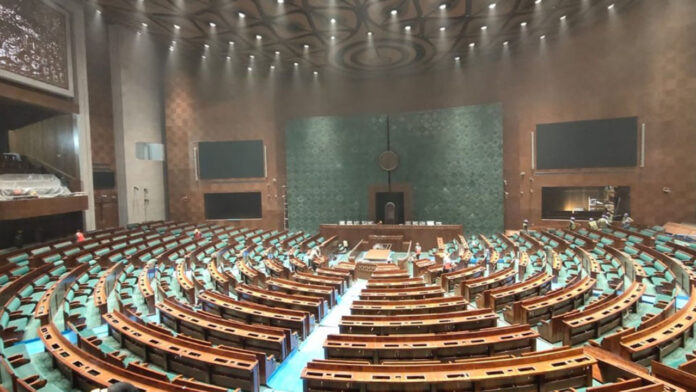In a bold move echoing the Trinamool Congress (TMC), the Aam Aadmi Party (AAP) has declared that it will boycott the upcoming inauguration ceremony of the new parliament building scheduled for May 28. The primary reason behind this decision is the alleged exclusion of President Droupadi Murmu from the guest list for the event. The AAP Rajya Sabha MP, Sanjay Singh, took to Twitter to announce the party’s stance, expressing deep dissatisfaction with Prime Minister Narendra Modi’s failure to invite the president.
Singh characterized the omission as a grave insult to President Murmu and described it as an affront to the Dalit, tribal, and marginalized communities in India. The AAP’s position aligns closely with the TMC, as Derek O’Brien, a TMC leader and Rajya Sabha MP, previously voiced similar discontent. O’Brien criticized Prime Minister Modi, accusing him of prioritizing self-promotion over respecting the parliamentary institution’s time-honored traditions, values, precedents, and rules. In a tweet, O’Brien made it clear that the TMC would refrain from participating in the ceremony, emphasizing that the event seemed more focused on the Prime Minister himself rather than the significance of the parliament. Now, with the Communist Party of India’s General Secretary, D Raja, declaring their party’s intention to boycott the ceremony, all eyes turn to the Congress Party to see if they will follow suit.
While the Congress Party’s stance remains uncertain, it is anticipated that they will also align with the AAP and TMC in their decision. The forthcoming inauguration of the new parliament building by Prime Minister Modi promises to be a momentous occasion. However, with the AAP, TMC, and potentially the Congress Party refusing to participate, the event may be overshadowed by the notable absence of key political figures. As the boycott gains momentum, it raises questions about the unity and inclusivity within the Indian political landscape, calling for a reconsideration of the factors driving these decisions.


